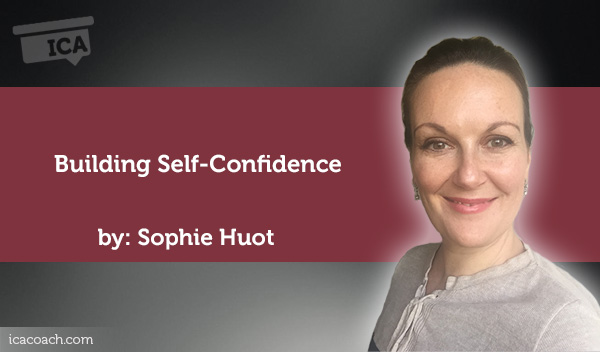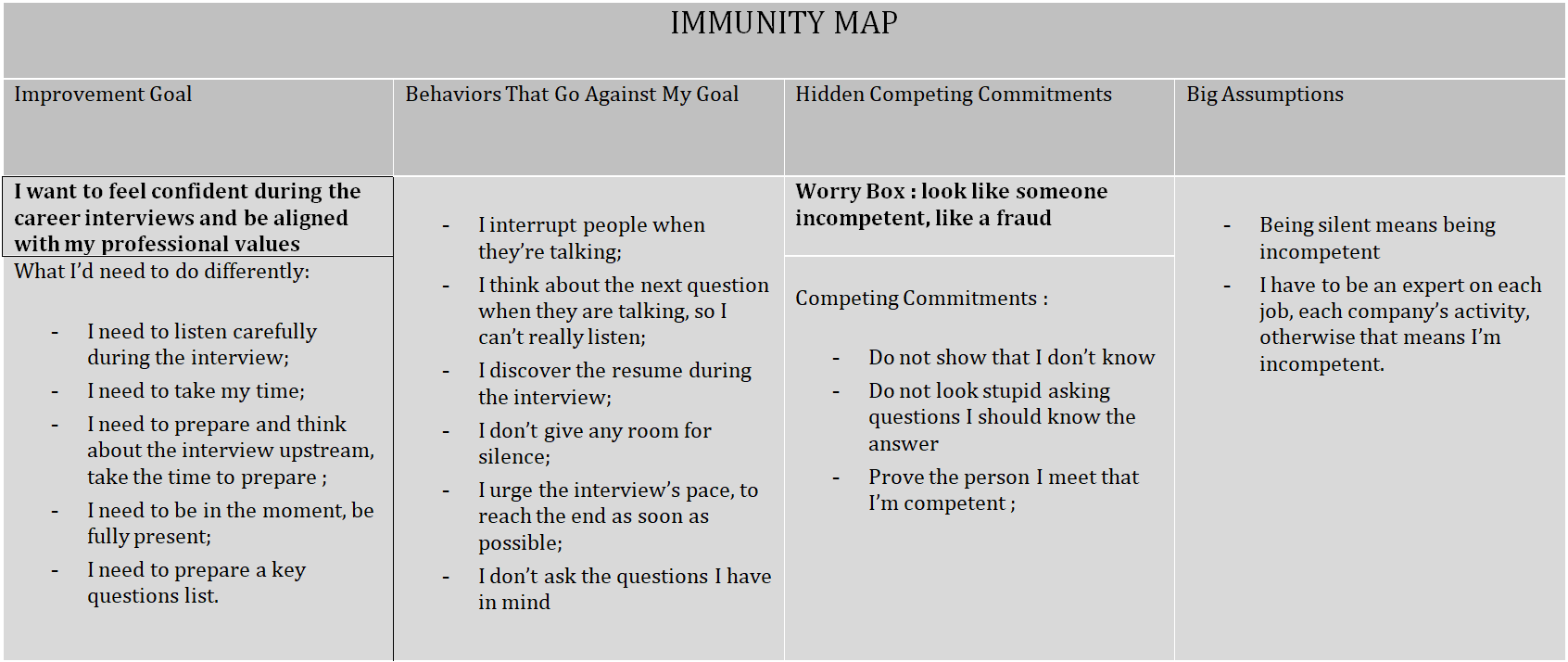
Coaching Case Study By Sophie Huot
(Life Coach, FRANCE)
Mary began her professional career as a Financial Controller, but after a few years working in this field, she felt the need to evolve toward a more human oriented career. She went back to school and graduated from a Human Resources master degree.
Her first job as a Human Resources professional was still related to her financial background as she was working on annual social reports and compensations and benefits.
Five months ago, she moved toward a Talent Manager position. Her job’s purpose is to meet, help and promote people, identified as high potentials, throughout their career plan within the company. She has to interview them, write reports on their expectations, strengths and weaknesses, and ultimately recommend them to managing directors, heads of department for a job position that suits them and represents a promotion.
She wants to be coached because she encounters difficulties in this new position.
As time passes by, she looses her self-confidence, and even questions her move towards Human Resources.
Hence, her goals are:
The Coaching Process
During our first two coaching sessions, we worked on her awareness and her values. Through listening and questioning skills, she gains some awareness and clarity on the origins of her discomfort.
She realized that she didn’t have a role model in Human Resources, someone she really admires professionally, nevertheless she was trying to behave and act like the others HR Professional around her, whereas her own professional values were not aligned with the way they were working.
Although she identifies her main professional values as authenticity, objectivity, usefulness, being able to have balanced and nuanced judgments, she feels that her managers expect from her to jump to conclusions, to give a very black or white feedback on the people she meets, then she can jeopardize their career if she is wrong.
This internal conflict brings a lot of anxiety, she’s afraid of missing crucial information by not asking the good questions, and ultimately being useless or worse to make a huge mistake.
During this process, due to my own professional HR background and because I held the exact same job position, I had to be very careful not to ask leading questions, to prevent myself from giving advise, and to be honest, I found it very difficult.
During the third coaching session, we kept on working on these interviews that represent the core of her position.While I was listening to her, I sensed a contradiction and asked her if I could share my feeling with her.
On one hand, she is always coming back to her need to be objective, to have a thorough understanding of the individuals she meets. She is also repeatedly referencing to her fear of having a blank during the interview, to not know what to say or ask next, and missed essential information.
On the other hand, she admits that she doesn’t prepare the interviews, that most of the time she has barely read the resume, and that she rushes to the end of the interviews. Moreover, she mentioned frequently during the first sessions that she needed to prepare a list of questions ready to use during the interviews, but she never did.
Then, what is getting in her way to do what she needs to do to feel more comfortable and less anxious?
I proposed her to work on this issue with an exercise: the immunity map.

Taking Action
Following this exercise, she decided to test her big assumptions during her next career interview.
I asked her if it was a safe space to test them.
In that case, the interview didn’t have any stake as the individual wasn’t looking for any promotion at this time:
I also recommended her to Watch the Brene Brown ‘s TEDx on the power of Vulnerability.
The Outcome
During the fourth coaching session, we focused on the test’s outcome.
Allowing herself to need some time to think about her next question, to be silent for a few seconds, she discovered that she was less anxious, more present and definitely didn’t have the feeling to look stupid. She was more focused, and more comfortable during the interview, and then felt more confident to be able to have the nuanced judgment she was aiming for.
She kept on practicing, and she is now able to lead these interviews without being nervous.